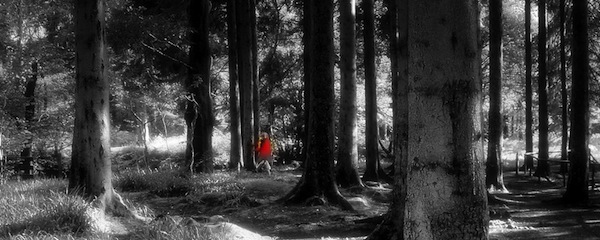MORGAN OMOTOYE finds the wildness in this modern-day fairy tale: ‘Thomas McGuane’s short story ‘Stars’, published in The New Yorker in June 2013, is about Jessica Ramirez, an astronomer. This ‘star gazer’, when we first meet her, is on an early morning hike, her surroundings full of bewildering awe…’
GINA CHALLEN discusses the comedy in Franz Kafka’s short story writing: ‘There is a wealth of humour in Kafka; it all depends on how you read him…’
‘Some short story collections open with a very strong story that takes you by surprise, to the point of wondering whether the writer will, as we read the stories that follow, live up to the expectations thus raised…’ JOSE VARGHESE finds much to admire in A.J. Ashworth’s ‘Sometimes Gulls Kill Other Gulls’.
Neil Hargreaves talks to us about Cut a Long Story (CUT) – a wonderful new e-publishing social network, developed by writers for writers.
ALAN McMONAGLE takes a look inside Sergei Dovlatov’s collection The Suitcase and finds the author hidden within the pages: ‘One day in the early 1980s, the Russian émigré-writer Sergei Dovlatov opened the door of a seldom-used closet in his Forest Hills apartment in New York City…’
ERINNA METTLER discovers the intricacies of a novel in stories from author Elizabeth Strout: ‘…when you combine the two tales, and the judgements you made about Olive in the first story, each story becomes something bigger than itself…’
PETER JORDAN examines Ezra Pound’s influence on the ending of ‘Up in Michigan’ by Ernest Hemingway: ‘Indeed, ‘Up in Michigan’s’ final paragraph might just be the place to look if you want to see where Hemingway made the leap from young budding writer to potential literary superstar…’
CLAIRE SAVAGE discovers a writer’s yearning in ‘Illumination’ by Éilís Ní Dhuibhne: ‘…amidst Ní Dhuibhne’s story-book rabbits and poetic prose, something unsettling ripples, unseen, like the suspected mountain lion thought to roam the hillside…
VICTORIA LESLIE examines the themes that lie within A.S. Byatt’s metamorphic story ‘A Stone Woman’: ‘This story is unequivocally about change, but also about notions of stasis and permanence…’
STEPHEN DEVEREUX finds hints of Tennessee Williams’ personal life in his story ‘The Resemblance between a Violin Case and a Coffin’: ‘This close brother and sister relationship has been frequently re-enacted in Williams’ plays and has provided a rich pasture for psychoanalytical critics to graze…’









